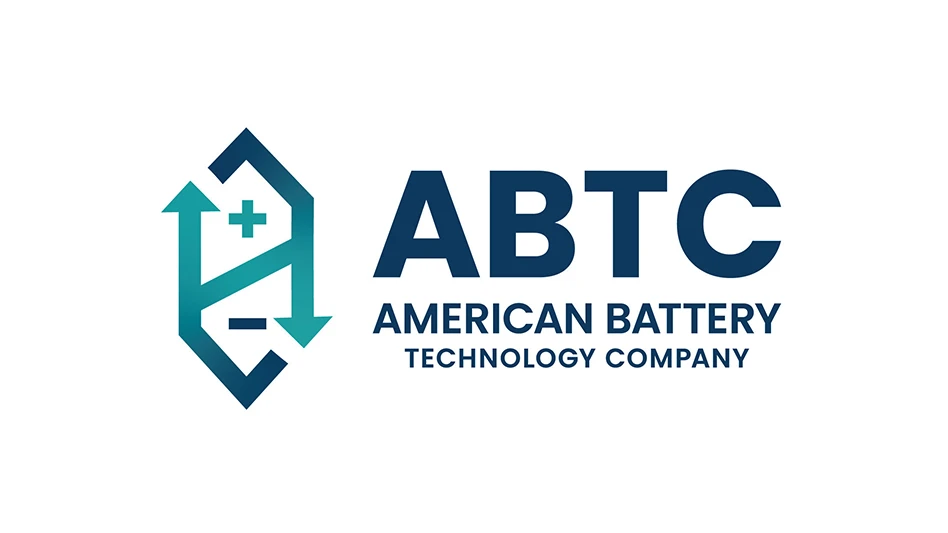Like many scrap merchants and brokers, Sheldon Tauben, president of Metalsco, St. Louis, started out in a completely different field — in his case, modern European history. But like many students, he grew tired of the academic life and sought a job doing research work for a small metals company in 1950. By 1954, seeking broader horizons, Sheldon joined the American Metal Company Ltd. in New York City as a scrap buyer. After one year in New York, he was transferred to Boston in 1956, then to Chicago in 1960.
"In 1964 there was a restructuring at Amax (previously The American Metal Company Ltd.), and I was sent to New York," Sheldon explains, "but I didn’t like the lay of the land. Then Ben Fixman, CEO of Diversified Metal Corp. in St. Louis offered me a job in scrap purchasing, so I came to St. Louis in 1965 and I worked for the company for 12 years. I wound up as executive vice president in charge of the trading department."
During his tenure, he says, Diversified grew from a relatively small St. Louis company to a large, multi-plant firm with publicly traded stocks. Looking for greener fields in the summer of 1976, Sheldon, along with a partner whom he bought out in 1987, formed Metalsco.
ONE-STOP SHOPPING
Metalsco has chosen to specialize in a range of nonferrous metal scrap, from copper and brass to aluminum to stainless steel, says Sheldon.
"We are a one-stop shopping center," he says. "We buy every day from wholesale scrap metal dealers, so when a dealer calls us, we have a price on four different grades of no. 1 copper, a price on no. 2 copper for domestic and export, we have prices for brass scrap, aluminum scrap, and stainless steel scrap. Many of our suppliers sell us more than one commodity. They call up to get all the current numbers on various commodities. We have some competitors that just deal with one commodity, so this is an advantage we have."
The company also deals in zinc, says Sheldon, but this is the smallest portion of the business.
Metalsco is a significant supplier of nonferrous scrap to many consumers in the United States, according to Sheldon, as well as doing significant trading abroad.
"We supply a number of copper and brass mills — we are sometimes their largest single supplier," he explains. "We also have a branch office in Tokyo, Commodities Trading Co. Ltd. Although they are a separate company from Metalsco, they are our exclusive agent. Any scrap we sell in Japan goes through them, and they don’t buy from anybody else in the United States."
Metalsco has a similar arrangement with firms in such countries as Italy, Taiwan, Korea, India and South America.
"We are a major exporter of aluminum, copper and brass scrap," says Sheldon. "We also import copper and brass from South America, Africa, and Mexico."
Although it varies from month to month, about 85 percent of Metalsco’s business is domestic, and the balance is devoted to international trade, he says.
"The nice thing about being involved in so many countries is that since markets change rapidly, we aren’t dependent on any one market. We might be selling to Korea on Friday and to China on Monday. Here in St. Louis we have kind of a bird’s eye view of the whole world of scrap activity."
SCRAP SPECIALIST
Metalsco buys and sells thousands of tons of scrap a month, depending on market conditions, according to Scott Tauben, trader for Metalsco and son of Sheldon. The company’s sales volume started at $12 million in 1976 and reached a peak of $175 million during the early 1990s.
"But sales volume can be deceiving, as the price of materials goes up and down," notes Scott. "The amount of material traded is more representative of how the business is doing, and each year we do a little more business. Each year we get a little bit better at this, and we get a little more market share. Sales volume could be $90 million for a year or $120 million, depending on how the prices are. We anticipate 1995 to be well in excess of $100 million."
Metalsco buys material mainly from scrap dealers and some lesser quantities on government bids. The company also has some industrial accounts, but these are not the main focus.
"We specialize in scrap," says Scott. "We don’t get involved in primary metal or anything else. Other companies try and do two or three different things. Rather than do several things just so-so, we just do one thing well."
The company sells directly to copper refineries, tube mills, brass mills, rod mills, aluminum rod mills, and rolling mills, says Sheldon.
"Any consumer that buys scrap metal — copper, brass, or aluminum — is a potential account of ours," he explains.
As for post-consumer recycling, Metalsco has only a small involvement in used beverage containers as part of its aluminum trading activity, says Scott.
"All our aluminum activity is smaller than our copper or brass activity, but it’s something we get involved in," he says.
The company’s traditional trading area runs from San Diego to Vancouver, from Halifax to Miami, says Sheldon. "We buy from those four areas and everything in between. We cover the country like a blanket. We also buy in Mexico, South America, Canada and Puerto Rico."
Metalsco is also an aggressive bidder on brass cartridge sheet scrap, through the U.S. government’s military scrap disposal program, says Sheldon.
"We find it a profitable business," says Scott. "It’s a good sized amount of metal to acquire in one shot. But on the other hand, you have to have the ability to market it successfully. You have to be able to pay for it in advance — the government doesn’t extend credit. You have to pick it up, bring it to a processing plant, and do whatever is needed to demilitarize it. You have to have the financial wherewithal to do this."
In 1993, the company purchased what is believed to be the largest single lot sold by the government at one time — 1.3 million pounds of brass shells from the Defense Reutilization and Marketing Service.
"We had to pay with a check close to $800,000 before we picked up the first pound," says Scott. "We were able to do this due to our conservative financial policies and ready cash flow."
FISCAL STRENGTH
Part of Metalsco’s business philosophy involves a conservative fiscal approach, according to the Taubens.
"My wife is vice president and treasurer," says Sheldon. "She has a degree in mathematics, and is an expert with finances. We do well in part because we don’t use credit, we operate on our own."
"For the merchant broker operation, the margin of profit you work on is smaller than if you were a wholesale metals dealer," adds Scott. "We don’t own any processing equipment — all we have is an office with typewriters and computers. The value of not borrowing money is important when you factor
the interest into the already slim margin. That small edge can be the difference between success and lack of it."
Having ready and ample operating capital is also key for a merchant, as brokers generally must pay customers long before they have been paid, he says.
"If you tried to pay your customers after you’ve been paid, you’d be in business for about a week," says Scott. "They’d get hip to that and that would be the end of you. So having a conservative monetary policy is imperative."
He also notes that, unlike some companies in the merchant business, Metalsco has never lost any significant amount of money due to bankruptcy.
"Our company has never taken any undue risks," says Scott. "We’ve been around a long time, and that’s more the exception than the rule. We also carry large insurance policies which insure our accounts. So people have a lot of faith that dealing with us represents an opportunity to avert certain kinds of credit risks and exposure they might not other wise have."
WEALTH OF EXPERIENCE
Metalsco now employs 15 people, although when markets were very strong several years ago, that number expanded to 22, says Sheldon. This includes the five-member trading department, plus a full time accountant, a domestic traffic manager, an export manager, and administrative assistants.
Joseph Pagano, the executive vice president, joined the company in 1976. He was also a former executive of Diversified Metals. Bret Tauben, manager of scrap purchasing and also a son of Sheldon, heads aluminum and stainless steel scrap activities, specializing in export trade. Steven Kimmel is a senior trader.
Combining the experience of all five traders, Metalsco features 130 years of experience in the scrap trading industry, notes Scott.
"I’m the newest one here and I’ve been doing this for 15 years," he says. "Sheldon can tell you stories of the scrap industry in 1950, Joe Pagano can go back to 1965, Bret goes back to 1977 and I go back to 1980, so if you have a question about an item that might be off the beaten path, an oddball item, we have a wealth of experience."
Sheldon is a former national vice president of NARI, and helped write the specifications for various types of copper scrap that appear in the ISRI NF-94 specifications. In addition, he was involved in the merger of NARI and ISIS, says Scott.
"I am currently the president of the Mid-America Chapter of ISRI, and former president of the local Recyclers of Greater St. Louis," says Scott. "I also serve on the nonferrous committee, copper division of ISRI on the national level, so we stay involved in both local politics and national matters."
Sheldon emphasizes the importance of family in the scrap industry.
"My son Scott buys scrap from the grandchildren of people I used to buy from," says Sheldon. "The continuation of the company from one generation to the next adds to the value of Metalsco. It’s all word of mouth business, and there’s a great deal of personal integrity involved in our relationships with suppliers."
The scrap industry, and scrap merchants in particular, continues to be firmly rooted in one-on-one relationships, Sheldon notes.
"It takes a long time to build this up, to get accounts to have confidence in you," adds Scott. "It’s not like a securities company where they’re recording the conversation, so if there is a discrepancy down the road they have that to refer to. We’re doing transactions on the phone that are worth thousands and thousands of dollars, and it is all done based on the integrity of the parties on each end ... the percentage of those deals that later on develop into some form of disagreement is minute."
Metalsco now sends out contracts, says Sheldon, "but by the time that contract is typed and sent, the market has changed." So personal relationships and trust are key.
"The bottom line is you have to have a first rate reputation for reliability and honesty and financial strength," says Scott.
HANDS ON
Although the company’s entire business is metal trading, with no physical scrap processing facility, Metalsco’s traders pride themselves on an intimate knowledge of the scrap processing and consuming industries, says Sheldon.
"Part of our stock in trade is the fact that all of our traders know intimately the commodities that we buy and sell – they are not just paper pushers," he explains.
"I have been to the plants of literally hundreds of scrap suppliers, because our philosophy is that if you’re going to do business, you should know your consumer and you should know your supplier," says Scott. "It’s a lot easier to do business when you know what they are talking about – if they say ‘we’ve got handling problems, for this reason, due to the way we’re set up,’ you have to be able to visualize it to be able to help."
Sheldon has the advantage of 12 years of experience with Diversified Metals, which was a significant player in scrap processing at that time.
"As executive vice president in charge of the trading department, I was out in a golf cart every day checking out the operations," says Sheldon. "This side of the business was well known to me. I also worked in a copper refinery many years ago before I went on the road buying scrap."
Scott notes that Metalsco makes a point of not competing with scrap dealers.
"Some merchants do that – they have a little industrial business on the side. Metalsco doesn’t do that; we don’t have any kind of facility that competes with any kind of a scrap processor, wholesale or retail, on any level. That could create a conflict of interest."
STEADY MARKETS
The copper market is currently steady but tenuous, according to Sheldon. The key to fully understanding the market situation is having perspective on market fluctuations over the past few decades, he adds.
"One of the problems a lot of people have in the copper market today is the fact that there is a tendency not to see the forest for the trees. You have to step back and say to yourself sometimes, ‘the copper market is $1.35, $1.40. For the last 20, 30 years, has it been up to that level very often?’ And the answer is no. It’s been under a dollar many years more than it’s been over a dollar. In fact, there were a number of years where copper never went over 60 cents. So the perspective aspect is very important."
Scott notes that 1994 and the first quarter of 1995 were generally bull markets for aluminum and copper, among other commodities.
"The markets have been strong the last 17 months or so, across the board. As for dealers and brokers and anyone in this industry — if they’re not enjoying some kind of success now, then they’ve got a problem."
But back to the importance of perspective, Sheldon notes that history repeats itself, and so in six months, the price of copper might be 10 cents higher or 10 cents lower.
"In the end, you can’t base your business on the trends because the market is highly speculative," he says. "What you do is go every day along to the best of your ability and try to avoid excessive speculation, which we do. But be aware that things change rather rapidly."
Although some say that brokers and merchants enjoy wider margins when the markets are in a downturn, Scott notes that everyone in the industry has greater potential to enjoy wider margins when markets are high than when they are low.
"Also, there is generally a larger generation of scrap on the move with higher prices," he adds.
GONE OVERBOARD?
Although Metalsco does not process materials directly, says Scott, the company still deals indirectly with the need for environmental compliance, as rules regarding Superfund, stormwater runoff, lead containment, etc. affect the way business is conducted.
"Superfund smacks of the unconstitutional – it involves judging somebody today because 50 years ago, there was dumping on the site," says Sheldon. "It will come back up again. I think industry has become more sensitive to the fact that the environment has to be protected. But I think the government has gone overboard on some things, especially Superfund."
Scott adds that Metalsco also addresses state and local rules regarding worker’s compensation, trucking, insurance, safety, and OSHA.
As for the future of the business, Metalsco plans to maintain its current direction while keeping an open mind to possible expansions or mergers, says Sheldon. "We’re at a comfortable size right now."
Sheldon just turned 70, but says he feels much younger – he is still vitally in-terested in the business. "If you didn’t like it, you couldn’t come in day after day."
Get curated news on YOUR industry.
Enter your email to receive our newsletters.

Explore the August 2001 Issue
Check out more from this issue and find your next story to read.
Latest from Recycling Today
- Circular by Shapiro releases "5 for Five" sustainability series
- Graphic Packaging set to close Ohio CRB facility
- Ameripen voices support for Maryland EPR bill
- Matalco to close Canton, Ohio, plant
- Maryland county expands curbside recycling to include electronics
- California EPS ban will be enforced
- YKK AP America introduces BetterBillet
- Fresh Perspective: Cameron Keefe





